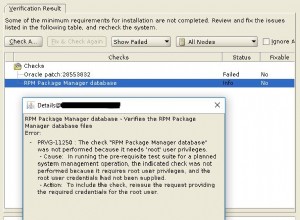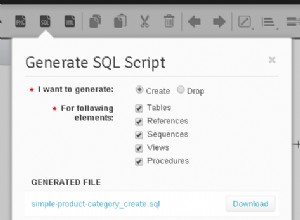Per quanto ne so, non esiste un meccanismo integrato per la gestione degli errori di PostgreSQL personalizzati. Tuttavia, puoi farlo a livello di repository.
Per farlo, devi generare errori in PostgreSQL usando ERRCODE come:
RAISE '[message for logs]' USING ERRCODE = 'integrity_constraint_violation';
e quindi gestirli nell'applicazione:
defmodule Core.Repo do
use Ecto.Repo, otp_app: :core
defoverridable insert: 2
def insert(changeset, opts) do
super(changeset, opts)
rescue
exception in Postgrex.Error ->
handle_postgrex_exception(exception, __STACKTRACE__, changeset)
end
# ... other functions
defp handle_postgrex_exception(exception, stacktrace, changeset \\ nil)
defp handle_postgrex_exception(%{postgres: %{code: :integrity_constraint_violation}}, _, nil) do
{:error, :integrity_constraint_violation}
end
defp handle_postgrex_exception(
%{postgres: %{code: :integrity_constraint_violation}},
_,
changeset
) do
{:error, %{changeset | valid?: false}}
end
defp handle_postgrex_exception(exception, stacktrace, _) do
reraise(exception, stacktrace)
end
end
Nota il {:error, %{changeset | valid?: false}} risposta. Significa che a quel punto non ci sarà nessun messaggio utile da visualizzare.
PS potresti probabilmente scrivere delle macro per sovrascrivere le funzioni di Ecto e nascondere lì l'implementazione (invece della soluzione proposta), ma credo che sarebbe molto più difficile da mantenere.




